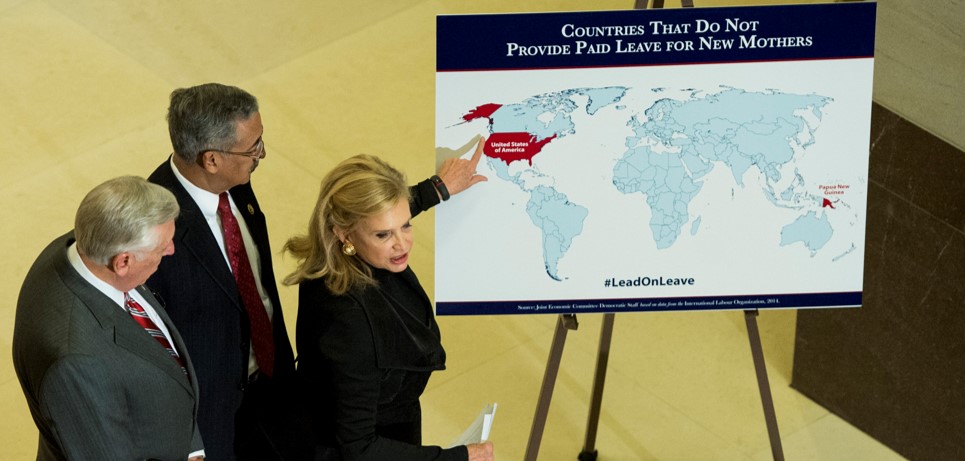
Under a new bill introduced in the Senate on Tuesday afternoon, federal employees would receive six weeks of paid parental leave for the birth, adoption or foster placement of a child. The six weeks would be separate from accrued sick and annual leave, and would provide federal employees more flexibility when raising a family. This is the Senate companion bill to Rep. Carolyn Maloney’s (D-NY) Federal Employee Paid Parental Leave Act (FEPPLA) legislation, introduced earlier this year.
As it currently stands, federal employees are eligible for up to 12 weeks of unpaid parental leave (that can be substituted with paid annual or sick leave) under the Family Medical Leave Act (FMLA) of 1993. While the FMLA was hailed as a momentous achievement in 1993, the U.S. needs to catch up with the rest of the developed world and provide greater flexibilities for workers who are building a family. The reality is that many federal employees simply cannot afford to take 12 weeks of unpaid leave to raise a child, and that is hampering the government from recruiting and retaining top talent in the federal workforce.
There are numerous benefits to providing paid parental leave to federal employees. Studies have shown that access to paid parental leave significantly increased the likelihood that workers will return to their jobs instead of dropping out of the labor force – which reduces the cost to federal agencies of providing training to new employees and keeps federal employees with highly-specialized skillsets in the workforce. Additionally, one of the many factors leading to the pay gap between men and women is the time women spend outside of the workforce for caregiving responsibilities.
“It is downright embarrassing that the US is the only developed country in the world that does not offer its employees some form of paid parental leave,” said NFFE National President William R. Dougan. “We have seen the President issue executive orders recently to reverse this unsettling truth, and now it is time for congress to act as well. The facts are clear of the overwhelming benefits of offering paid parental leave to employees, and family-friendly policies like this will assist the government in recruiting and retaining the highly-qualified workforce it needs to carry out the mission of the American people. NFFE will continue to push in the 114th Congress to pass this legislation and its companion in the House.”

The US is one of two developed countries not providing paid parental leave to employees
